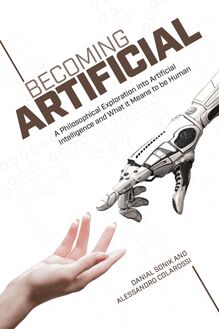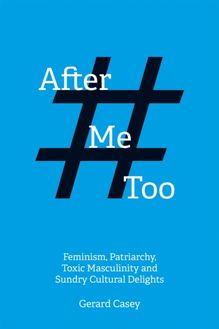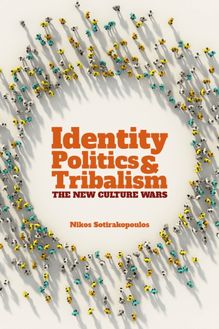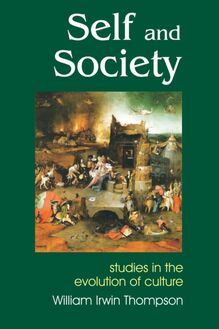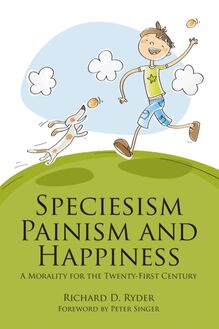Just Another Ape? , livre ebook
74
pages
English
Ebooks
2013
Vous pourrez modifier la taille du texte de cet ouvrage
Obtenez un accès à la bibliothèque pour le consulter en ligne En savoir plus
Découvre YouScribe en t'inscrivant gratuitement
Découvre YouScribe en t'inscrivant gratuitement
74
pages
English
Ebooks
2013
Vous pourrez modifier la taille du texte de cet ouvrage
Obtenez un accès à la bibliothèque pour le consulter en ligne En savoir plus
Publié par
Date de parution
12 novembre 2013
Nombre de lectures
0
EAN13
9781845407445
Langue
English
Publié par
Date de parution
12 novembre 2013
Nombre de lectures
0
EAN13
9781845407445
Langue
English
Title page
Just Another Ape?
Helene Guldberg
SOCIETAS
essays in political
& cultural criticism
imprint-academic.com
Copyright page
2013 digital version by Andrews UK Limited
www.andrewsuk.com
Copyright © 2010 Helene Guldberg
The moral rights of the authors have been asserted.
No part of any contribution may be reproduced in any form without permission, except for the quotation of brief passages in criticism and discussion.
Originally published by
Imprint Academic, PO Box 200, Exeter EX5 5YX, UK
Originally published in the USA by Societas
Imprint Academic, Philosophy Documentation Center
PO Box 7147, Charlottesville, VA 22906-7147, USA
Acknowledgements
I would like to thank Anthony Haynes for encouraging me to write this book. Special thanks also go to Dolan Cummings, Jeremy Taylor and Jim Butcher for reading initial drafts of the entire book and giving me invaluable and detailed feedback. Others have been helpful by reading drafts of particular chapters and drawing my attention to useful material, including Jennie Bristow, Jan Bowman, Claire Fox, Rob Lyons, Brendan O’Neill and my husband Patrick.
Introduction
‘Homo sum: humani nil a me alienum puto.’ (‘I am human: nothing human is alien to me’)
Terentius Lucanus, (ca. 195 BC–159 BC)
Today we are continually reminded about the damage done to our planet and its many living species by ‘selfish’, ‘greedy’ and ‘predatory’ humans. Everyone from celebrity chefs and supermodels to politicians and the media chatterati is getting hot under the collar about our treatment of animals – whether tigers in India, pandas in China, gorillas in Africa, seals in Canada, polar bears in the North Pole, whales in international waters, or indeed chickens in the UK.
When I started writing Just Another Ape?, the plight of chickens was the latest cause célèbre. Celebrity chef Hugh Fearnley-Whittingstall launched the campaign ‘Chicken Out’ in 2008 to try to stop supermarkets from stocking factory-farmed chicken, and in the world of the ethical food-snob, ‘cheap meat’ became synonymous with barbarism. Before that, luxury goods were the focus of complaint: veal calves, foie gras , and, of course, fur. Supermodels Cindy Crawford, Linda Evangelista and Naomi Campbell made headlines in the 1990s by posing naked for the campaign by People for the Ethical Treatment of Animals (PETA), ‘I’d rather go naked than wear fur’, only to be seen a few years later on the catwalk wearing fur coats, the fun of principled nudity apparently having worn off.
A few years later celebrity artist Rolf Harris made an acid-techno single about Canada’s annual seal hunt, titled ‘Slaughter on the Ice’, calling on us all to ‘rid the world of this shocking annual bloodbath.’ Drawing attention to the plight of animals further from home, Hollywood actors Minnie Driver and Ralph Fiennes, along with countless other celebrities, have taken part in television commercials for the US conservation group WildAid, warning of the many perils faced by Asia and Africa’s endangered species. The United Nations named 2009 the Year of the Gorilla ‘to save one of humankind’s closest but critically endangered relatives’ (UN News Centre, 2008).
And let’s not forget the polar bear, which, as Brendan O’Neill points out on spiked , has become ‘a symbolic victim of man’s wanton destruction of the planet’ and ‘the poster boy for the green lobby’ (O’Neill, 2008). In the May 2007 issue of Vanity Fair, Leonardo DiCaprio posed with the polar bear cub Knut on an Icelandic glacier (with a little help from PhotoShop) in order to highlight what might be lost as a result of manmade global warming.
Human beings are ‘heartless exploiters of animals’, and have ‘a sentimental tendency to put [our] own species on a pedestal’ exploiting other animals ‘as our slaves’, warns Richard Ryder (6 August 2005), British psychologist and philosopher and former chair of the Royal Society for the Prevention of Cruelty to Animals (RSPCA). Ryder is the man who coined the term ‘speciesism’, which, he says, came to him in 1970 while lying in a bath in Oxford. Speciesism is ‘like racism or sexism – a prejudice based upon morally irrelevant physical differences’, he explains (Ryder, 6 August 2005).
‘Speciesism’ has since been popularised by the world-renowned Australian philosopher Peter Singer. Singer cofounded the Great Ape Project (GAP) in 1993 because of the ‘undeniable scientific proof that non-human great apes share more than genetically similar DNA with their human counterparts’ (GAP, 1993). He argues that we need to ‘break the species barrier’ and extend rights to apes, in the first instance, followed by all other animal species. Singer is far from alone in wanting to knock human beings off our ‘anthropocentric pedestal’: those who argue that animals, and especially apes, are really ‘just like us’ are getting an ever-wider hearing today.
Even Spain, the land famous for bullfights, is taking up the issue of animal rights: in March 2009, 100 Spaniards stripped naked, smeared themselves in red liquid and lay on the ground in a Madrid square as part of an international day of protest against Canada’s annual ‘massacre’ of seals; and in 2008 the Spanish parliament announced its support for the Great Ape Project’s mission to give apes legal rights currently only granted to human beings. ‘This is a historic day in the struggle for animal rights and in defence of our evolutionary comrades which will doubtless go down in the history of humanity,’ Pedro Pozas, the Spanish director of the Great Apes Project, said (Glendinning, 2008).
Meanwhile, a recent New York Times op-ed took issue with the degrading use of chimps in advertising. Representations of chimpanzees ‘serve as a benchmark for our society’s moral progress’, claimed the New York Times, but conceded that misrepresentations ‘may not be as repugnant as racism, bigotry or sexism’ (Ross, 2008). Readers were encouraged not to lose heart: the ‘good news’ is that ‘a growing number of companies, including Honda, Puma and Subaru, have pledged to stop the use of primates in advertisements’ (Ross, 2008).
In contrast, three decades ago, when Singer’s book Animal Liberation – often referred to as the Bible of the animal rights movement – was first published, the intellectual and public mood was very different (Singer, 1975). The use of the term ‘speciesism’, drawing explicit parallels with racism and sexism, provoked widespread ridicule. It was considered insulting and offensive to equate the plight of animals with the social inequalities that had given rise to the civil rights movements of the previous decades. But according to Singer, the term was used deliberately, ‘to say that just as we needed to overcome prejudices against black people, women and gays, so too we should strive to overcome our prejudices against non-human animals and start taking their interests seriously’ (Singer, 2003).
In his 2007 book Ten Questions Science Can’t Answer (Yet!), Michael Hanlon, science editor of the Daily Mail , similarly draws parallels between speciesism and racism. He writes:
It may well be the case that in decades or centuries to come we may look back upon the way we treat our fellow creatures today with the same sort of revulsion with which we now treat slavery – a practice which 250 years ago was widely accepted in most of the ‘advanced’ societies on the planet (Hanlon, 2007: 40).
Today the assertion that the interests of animals’ should be considered on a par with those of humans rarely raises an eyebrow. Indeed, a recent op-ed in the New York Times argued: ‘This idea popularized by Professor Singer – that we have ethical obligations that transcend our species – is one whose time appears to have come’ (Kristof, 2009). As Singer points out in the introduction to his book In Defense of Animals: ‘In 1970 the number of writings on the ethical status of animals was tiny [and] the tally now must be in the thousands’ (Singer, 2006: 2).
To me, this growing obsession with animal welfare tells us more about what the protagonists think of human beings than what they think of chickens, seals, whales, polar bears, tigers, apes or any other beast. Today’s sentimentalised view of animals is more often than not coupled with a nightmarish vision of human destructiveness – and in many cases revealing a rather degraded view of particular classes and races of people.
Food snobs hide behind a concern for the welfare of chickens to have a go at the uncouth masses who buy their cheap chicken in Tesco. Wildlife conservationists in Africa have a long history of being widely disliked by the local community because of their often outspoken racism and violence against the local people. And the anti-whaling lobby – with Britain, Australia and New Zealand at the helm – uses moral grandstanding as a way of having a go at the ‘uncivilised’ whale-eating nations of the world, and presenting themselves as pure and righteous in comparison. They are clearly not driven by anti-hunting sentiments in general as in all these countries people kill other animals for their meat and fur.
But it is not only a matter of celebrity chefs, TV personalities, supermodels, actors and politicians cynically jumping on the fashionable animal welfare bandwagon to puff themselves up and feed their own sense of superiority. Today’s obsession with animal welfare indicates a broader contempt for humanity in general. Times columnist Matthew Parris sums up this outlook well: ‘To many, love of “Nature” is the flipside of distaste of Man, or an embarrassment – even shame – about being human’ (Parris, 2008).
In The Great Ape Project Douglas Adams, of Hitchhiker’s Guide to the Galaxy fame, describes his thoughts while watching free-living gorillas in Zaire. It is ‘p

